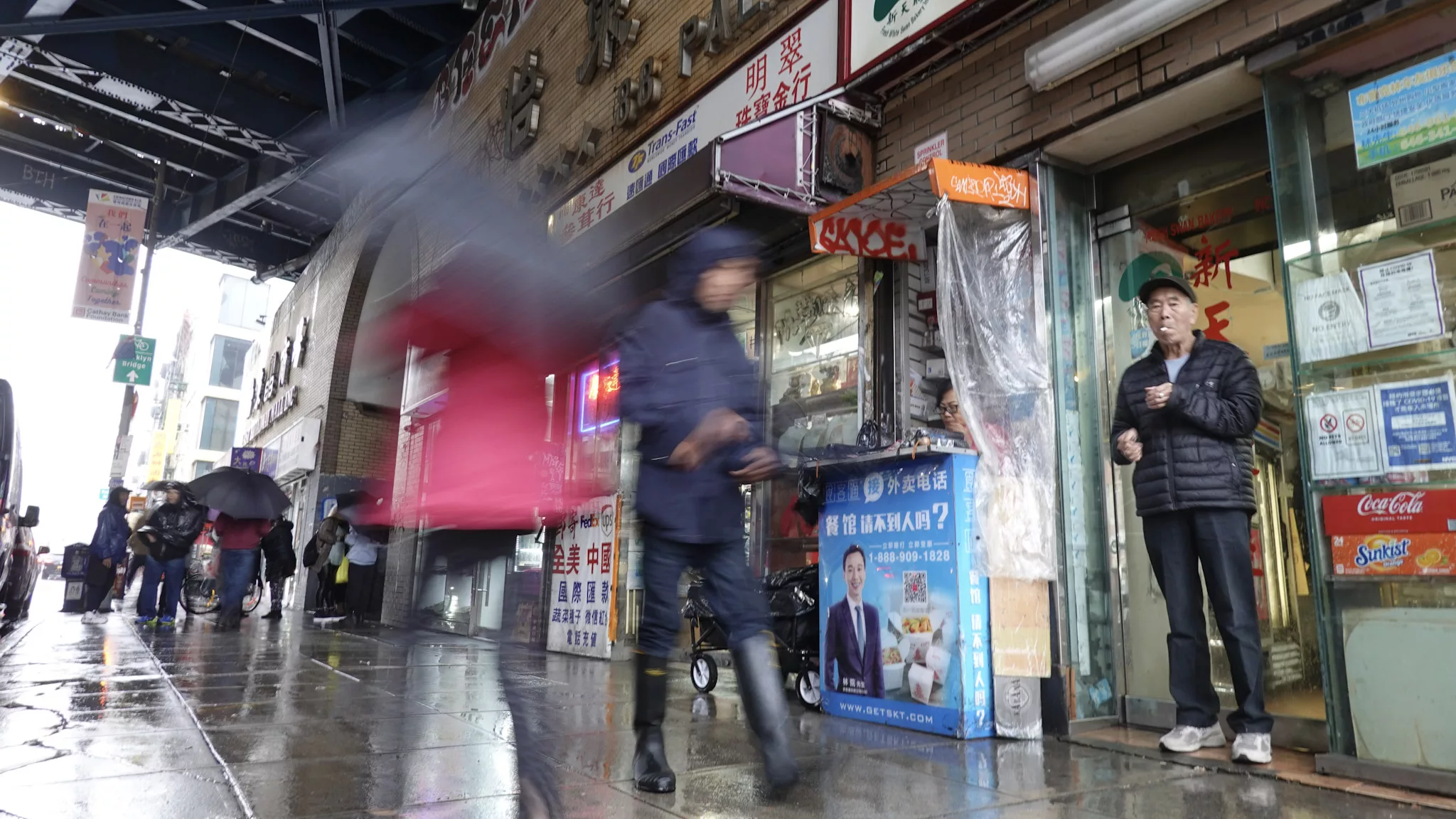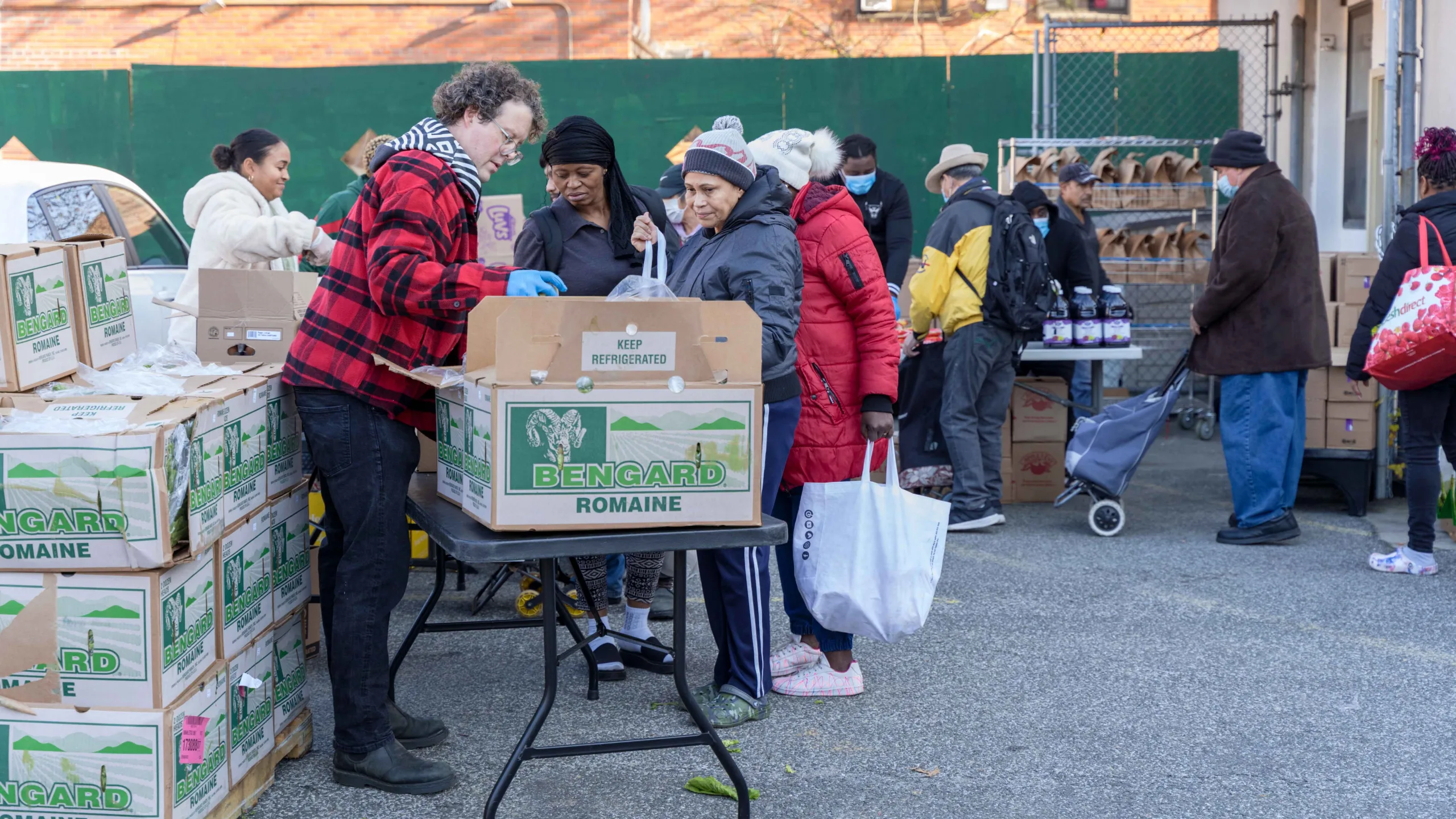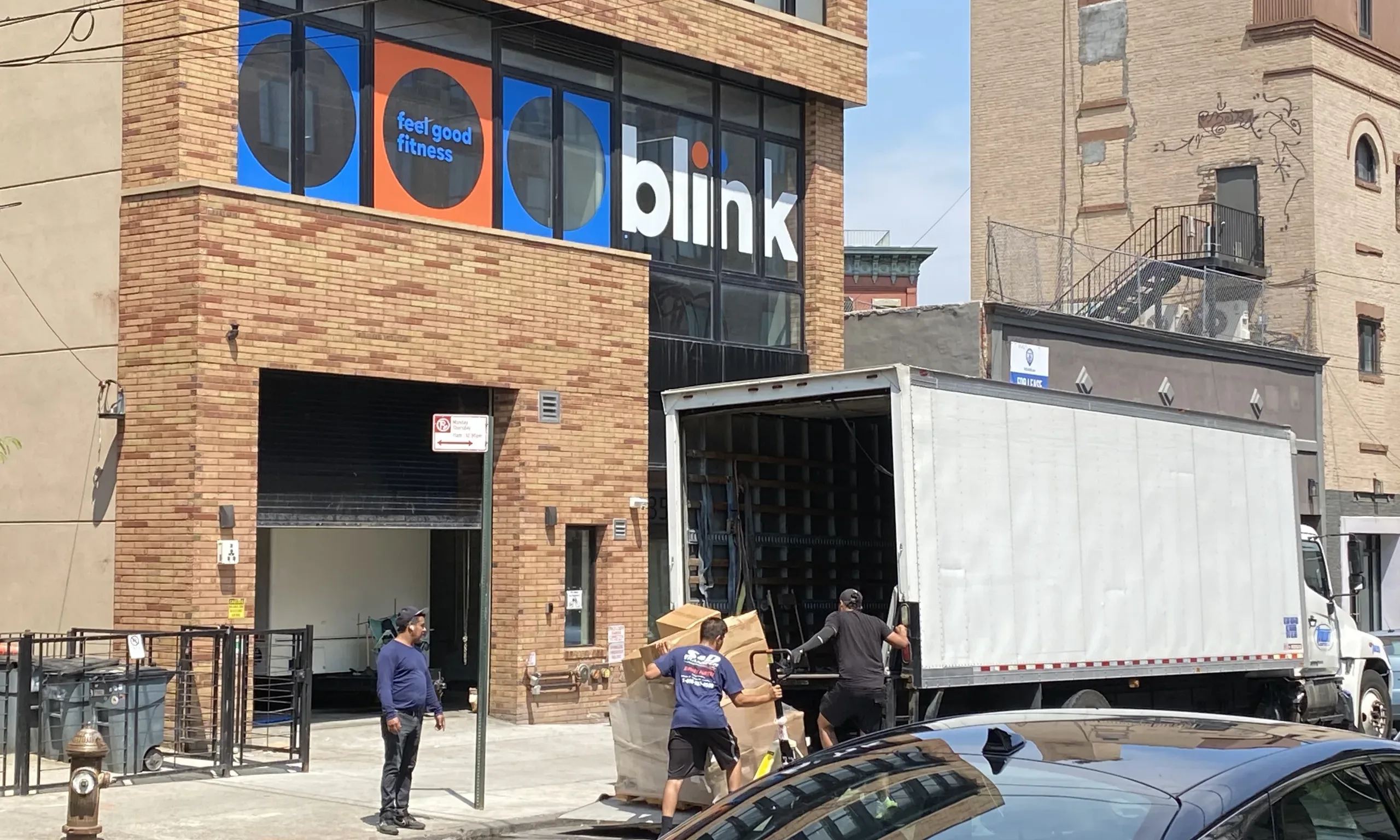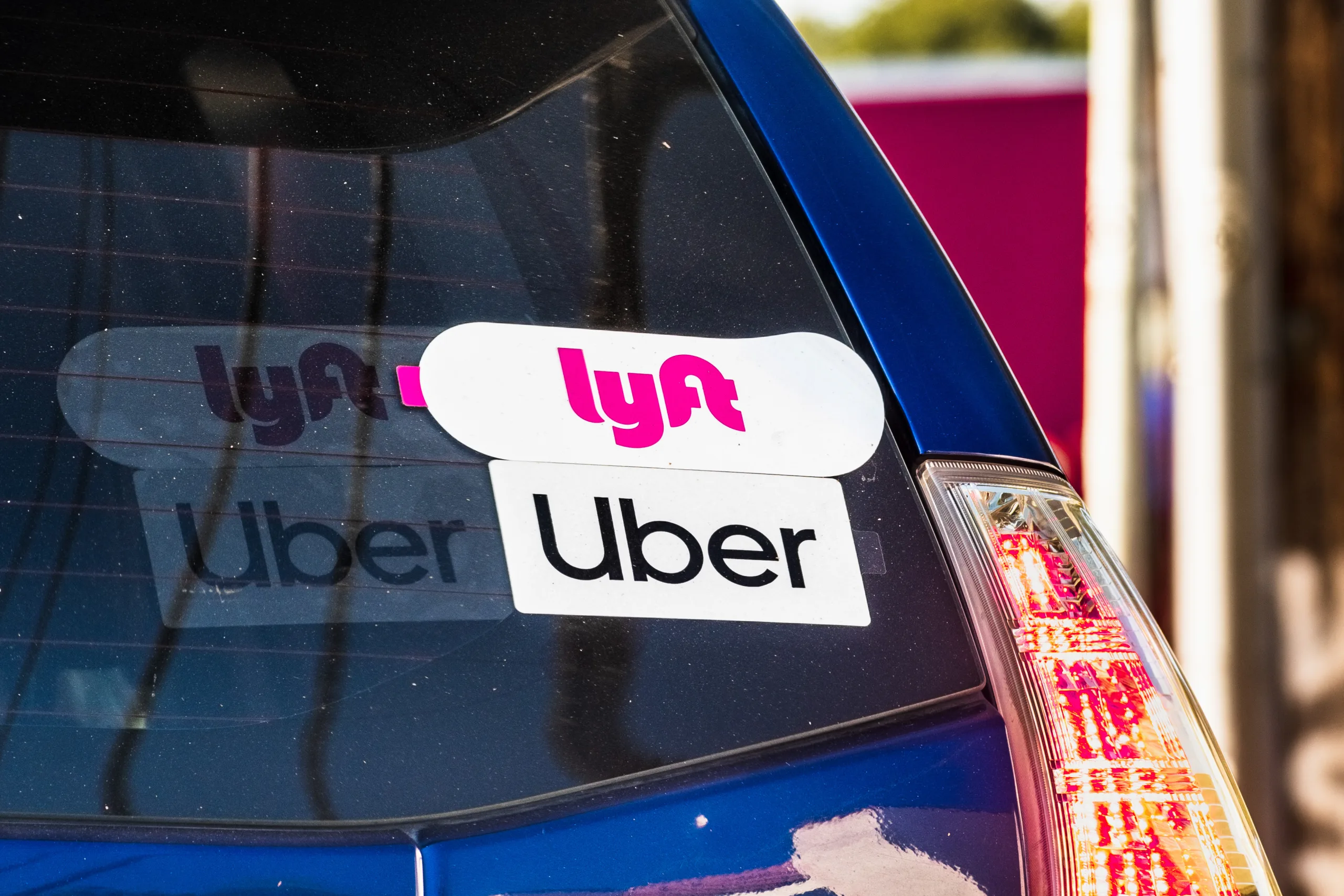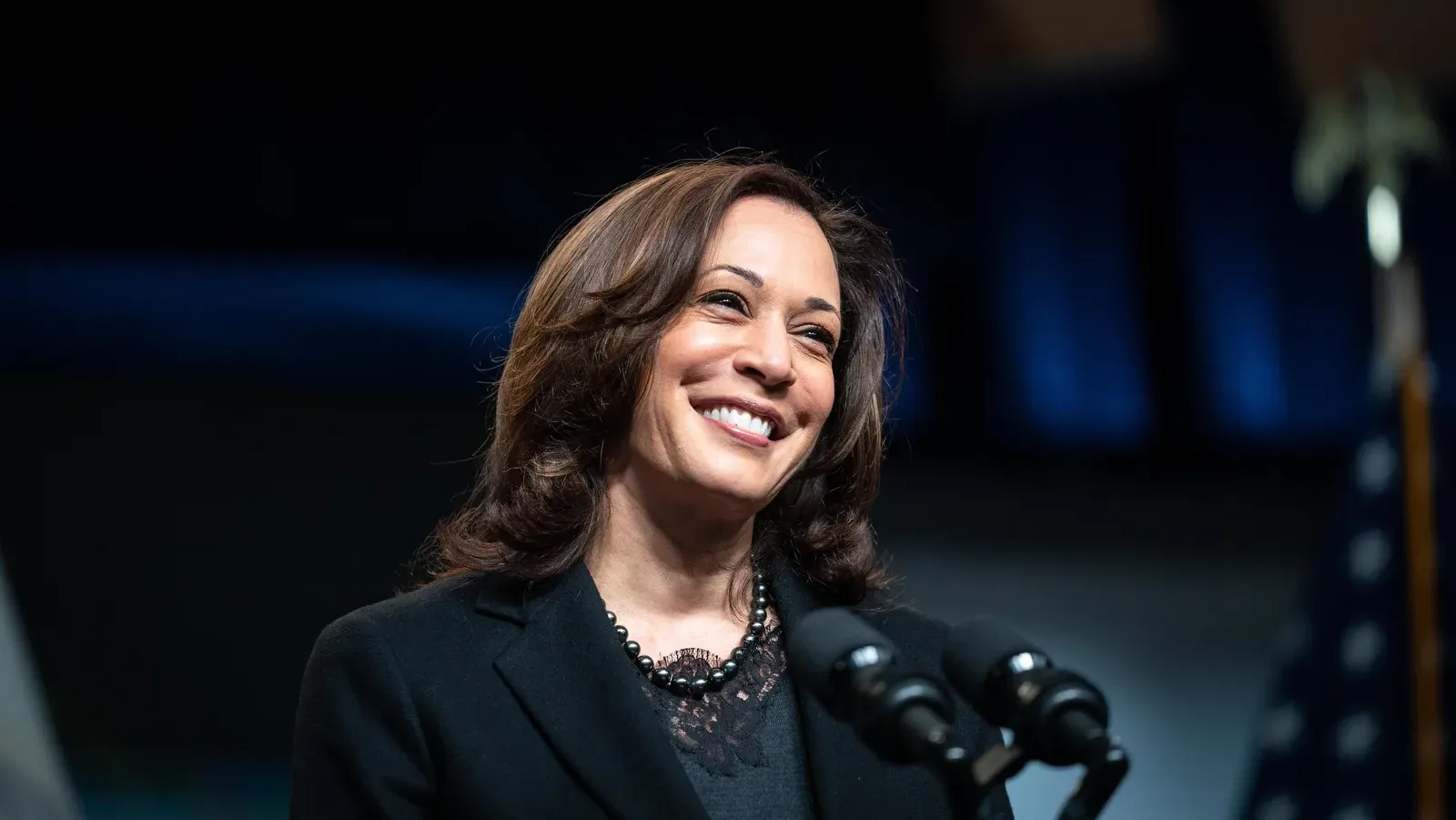On Sept. 29, when New York City was hit by record rains, the 88 East Broadway Mall in Chinatown was experiencing one of its busiest days since the pandemic. Nearly 300 Chinese immigrants from Langqi, a village in the Fujian Province in China, gathered to hold a religious ceremony and banquet in honor of their deities at the mall’s renowned restaurant, 88 Palace.
阅读中文版:唐人街地产交易背后错综复杂的政治关系网
The air carried a unique blend of scents — the fragrance of roasting suckling pig mingling with burning incense. Amidst the lively beats of gongs and drums from the lion dance, people exchanged greetings in their hometown dialects. Looking over the large banquet hall, Yangchao Lu, the general manager of 88 Palace, could not shake off a lingering apprehension.
Just months ago, Lu learned through a local newspaper that his restaurant — which he has run for 21 years and is his main source of income — was at risk of closure, despite his lease being valid until 2035, he says. A new restaurant would open in 88 Palace’s place, and, what’s more, the proposed new restaurant pledged to hire new union workers in accordance with an agreement facilitated by City Councilmember Christopher Marte’s office and the 318 Restaurant Workers Union. Lu said the new operator never contacted him to let him know of the changes, but through the newspaper article, Lu discovered that after 38 years of family ownership, the mall was changing hands to a recently formed company — the Broadway East Group LLC.
The new operator has “never made any contact with me regarding this matter,” Lu said, voicing his anger and frustration about the deal, adding he already has his own workforce and he intends to continue operating the restaurant.
East Broadway Mall, once an iconic community and commercial hub in Chinatown as well as the cornerstone for the Fujianese community in New York, has been undergoing a significant transformation following its years of decline and the bankruptcy of its current operator, East Broadway Mall Inc., in 2019.
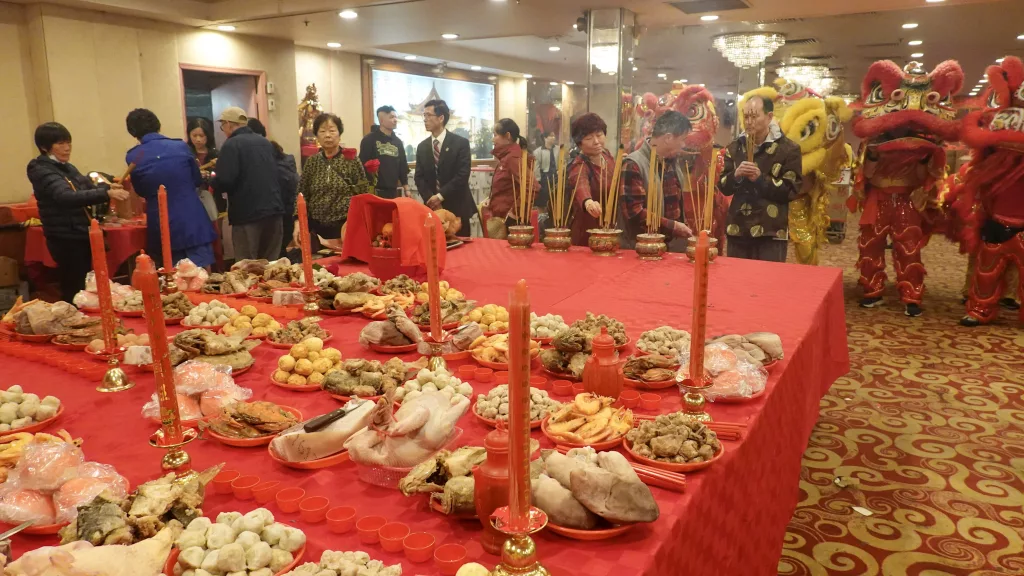
The city-owned building has changed hands in the past year from family ownership to the BEG, a mysterious LLC that has largely kept its funding quiet. But Documented was able to uncover direct connections between the BEG, several powerful city government officials and Mayor Eric Adams’ administration, which had to approve the proposal to transfer the lease of the mall.
Most notably, Wade Li, the head of the Chinese Chamber of Commerce of New York (CCCNY), an influential Chinatown business association connected to the project, appeared at a community event in San Francisco alongside Jordan Coleman, Eric Adams’ son, and Winnie Greco, the Mayor’s Director of Asian Affairs.
Read More: The New Generation of Chinatown Leaders on the Neighborhood’s Future
Three months later, a fundraiser for Mayor Eric Adams was hosted on June 8 at Li’s restaurant Hakka Cuisine on Division Street in Chinatown. There, he was photographed with the mayor, Greco and several members of Broadway East Group. In total, six BEG and CCCNY members donated to the mayor that day.
Some in the community have begun questioning if political connections, including the Mayor’s Asian Affairs Director Winnie Greco, helped the BEG win the deal. “When you hear this series of things, it’s hard not to consider some connection between them,” a source, who preferred to remain anonymous and possessed knowledge of the East Broadway Mall project along with connections to the involved parties, said, “the community knew little about this new group, and we are wondering how it secured this bid.”
“Between heaven and hell”
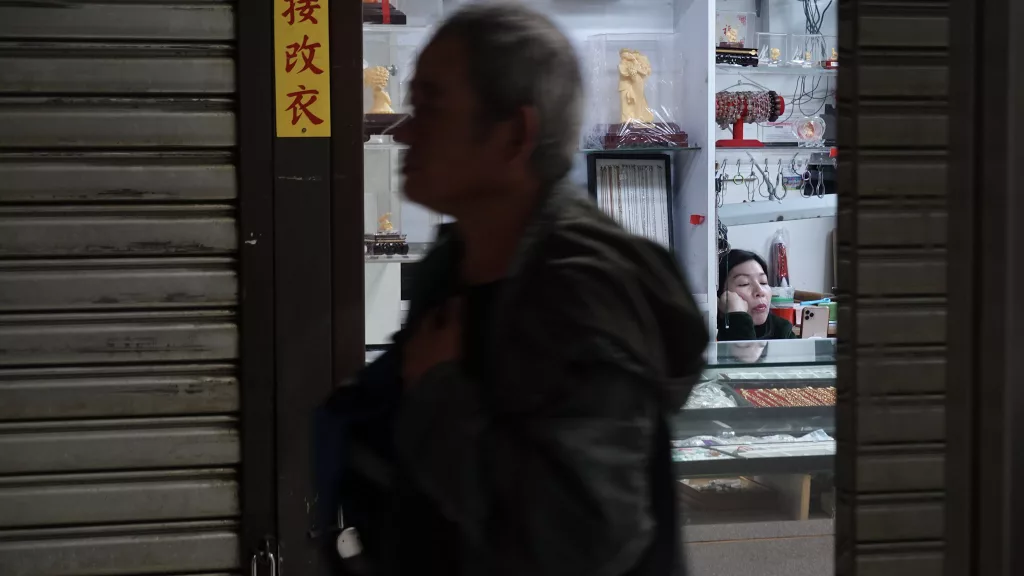
Located at 88 East Broadway, the three-story mall once accommodated over 100 local businesses, such as hair salons and grocery stores, with 88 Palace’s spacious banquet hall occupying the second floor.
Before the mall officially opened in 1988, the city-owned land sat vacant for years. Trucks would park there during the day, and gangs would roam in the night. In 1985, the city signed a 50-year lease with Kwok Ming Chan’s family.
Starting his business in 1991 within the mall, Steven Wu shares a profound bond with the establishment as one of its inaugural tenants. Wu recalled that during the mall’s heyday in the late 90s and early 2000s, Fujianese immigrants frequented the mall for affordable prepaid phone cards and wholesale merchandise. According to Wu, the mall served as a thriving hub for them to connect with fellow diaspora members from their hometowns. “The mall was always crowded. During Thanksgiving, lines would form outside as early as 5 or 6 a.m. Fujianese immigrants from various locations flocked to the mall, either to attend banquets or go shopping,” said Wu.
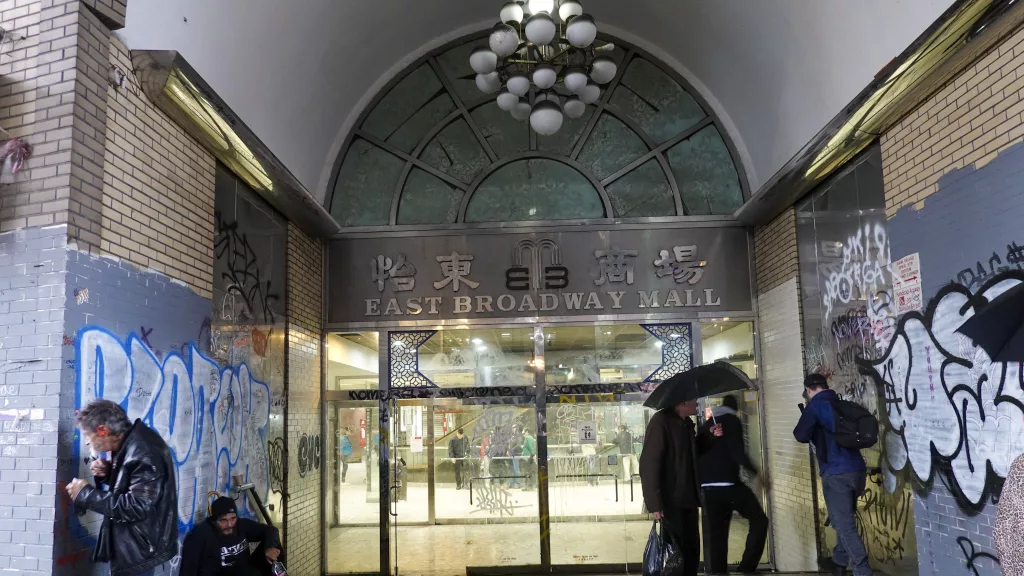
Illustrating the mall’s significance and widespread recognition within the Fujianese community, Wu recounted an incident where a Chinese customs official identified an individual attempting to use counterfeit documents to enter the United States. The official asked whether the individual knew the mall’s location after the man mentioned that he lived in Manhattan Chinatown. “The guy said he doesn’t know, and the official was like, ‘How can someone who lives in Chinatown doesn’t know where the East Broadway Mall is?’ That’s how they got him,” Wu laughed.
Inside, some stores are cluttered with dusty ladders and scattered wooden boards. During rainy days, water leaks through cracks in the ceiling. Wu, who currently manages a store specializing in gifts and tailoring on the lower level floor, lamented the drastic decline in his business. “The disparity between then and now is akin to the difference between heaven and hell,” he said.
Wu, President of 88 East Broadway Tenants Non-Profit Organization, Inc., said the mall once housed over 100 local businesses, but as of late, only 23 vendors remain under lease with the current operator, including a Fujianese restaurant, cosmetic shop, and tailor shop, among others.
Shifting alliances
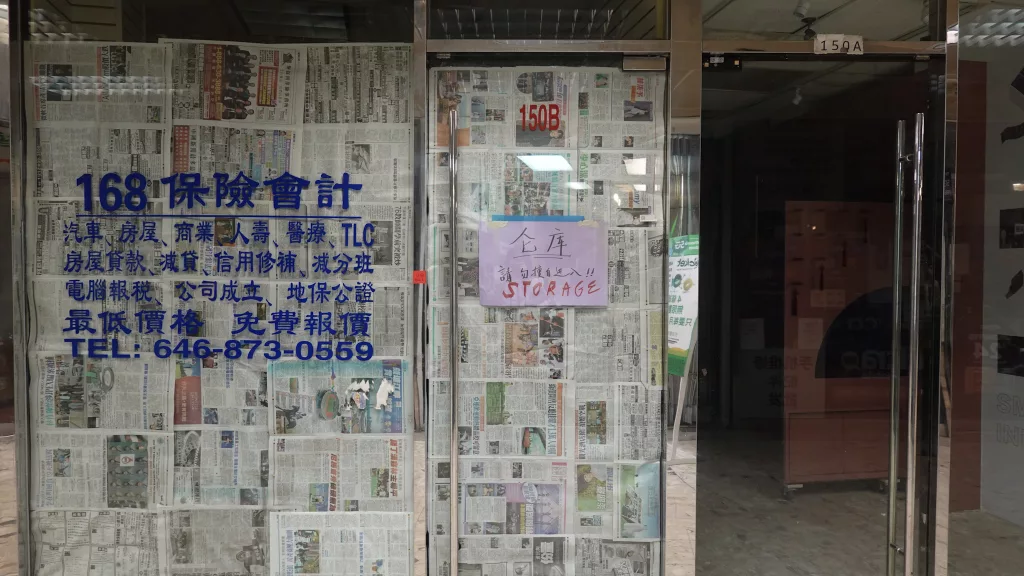
Prior to going bankrupt in 2019, the Chan family struggled to keep the mall afloat as they faced rising rents. Initially, when the Chan family signed its 50-year lease with the city in 1985, they paid an annual rent of $432,000 that would increase 20% every ten years. Additionally, the Chan family agreed to pay the city a PILOT, which was equal to paying property taxes on the building.
At first, the PILOT cost $43,000 a year, but now it has swelled to well over a million dollars, substantially more than the building’s $746,496 annual rent, according to Chan’s lawyer. In order to stay afloat, the mall was forced to raise rents, which in turn forced many long-time tenants to flee. DCAS (Department of Citywide Administrative Services) disputes the $1 million figure, stating that the current assessment is $703,897.56 per annum. By 2023, the Chan family owed the city $17 million, including PILOT and late fees.
For years, the Chan family applied to the city to restructure their lease, but according to the Chan family’s lawyer, Sarah Keenan, the city refused to budge. “The city put them out of business,” she said. “The PILOT is what killed them.”
In July 2019, East Broadway Mall filed for Chapter 11 bankruptcy. In September 2021, Chan’s lease renewal was rejected by the City despite receiving support from many community members and elected officials.
In a letter submitted on July 11, 2022, to DCAS, Marte encouraged the agency to engage with the Chan family and consider their plan to revitalize East Broadway Mall, stating, “I have reviewed Chan Family’s plan and believe that it presents a meaningful step forward for this space, and Chinatown as a whole.” Manhattan Borough President Mark Levine also filed a letter of support for the family, according to a document in the Chan’s bankruptcy filing. About a year later, both elected officials would change their support to BEG.
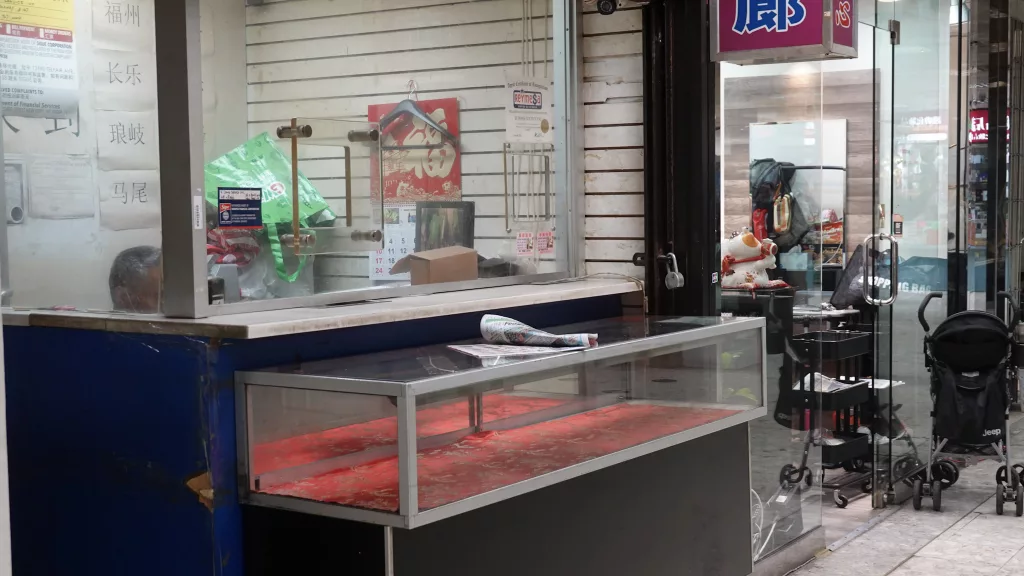
Consistent with the Bankruptcy Court’s order to timely resolve the matter, the Bank of Hope, the mortgage holder of the East Broadway Mall, asked for the best and final offers from potential operators before selecting BEG.
According to DCAS, it was the Bank of Hope that solicited final offers from several parties to operate the mall. After vetting the four offers submitted, the City and the bank both agreed on Broadway East Group. The offer by Broadway East Group was determined to be the most favorable to the bank and the City because it ensured that the mall would be revitalized while also allowing existing tenant protections. Next, the plan was subject to City and court approval. DCAS requested a supportive resolution from Community Board 3 to present to the Borough Board. Once the Borough Board granted approval, DCAS then sought Mayoral authorization.
In a June meeting, Community Board 3 revealed that Broadway East Group LLC (BEG) would become the mall’s new operator, with the Manhattan Board granting approval on September 21. In listing their principal members, BEG only names Chinatown developer Bill Lam and a Brooklyn real estate developer Guanyu Li, who is also known as Leeboy.
There is, however, a high level of anxiety among merchants that BEG will end their leases and bring in new tenants who will pay higher rents.
In September 2022, before DCAS made its selection of potential candidates, BEG had promised the current merchants five-year leases but shortened this to two years in April 2023, potentially resulting in tenant eviction after the mall’s renovation, according to Wu and other merchants in the mall.
“Both [Manhattan Borough President] Mark Levine and I have been advocating for five years,” Marte said. “We feel two years is too short, especially since construction is going to take 16 months and we want to make sure that the people who have been in the mall through its highs and lows get to remain.”
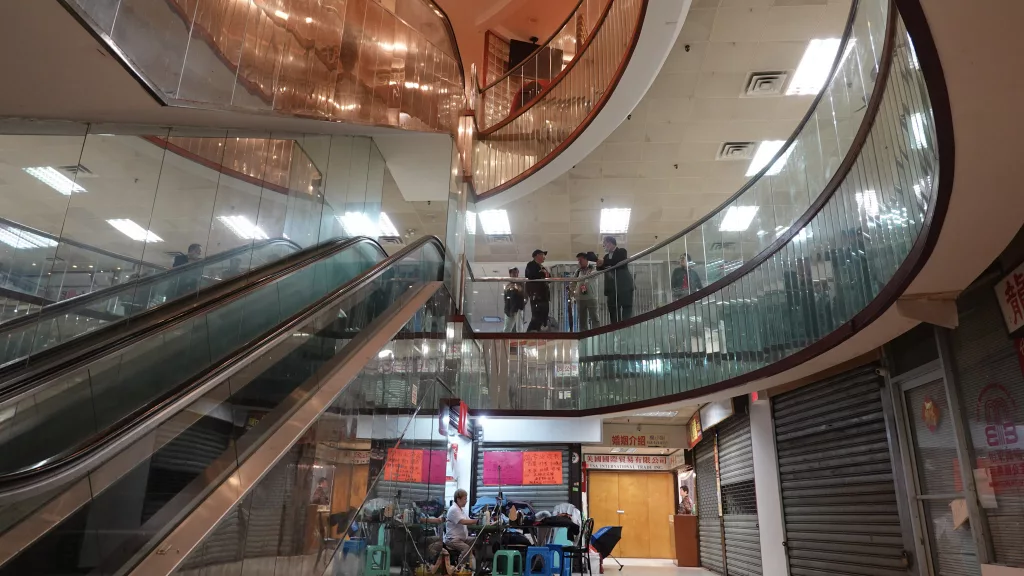
In a statement regarding the approval of BEG’s proposal, Levine highlighted the significance of the East Broadway Mall as a vital community asset for Chinatown that has unfortunately declined in recent years, adversely impacting its small businesses.
“This community deserves a secure, well-managed space, and that’s why I support the City’s initiative to appoint a dedicated new operator to revitalize the mall, with at least $5 million allocated for repairs,” explained Levine.
Connections to a major Chinatown player
When discussing the redevelopment project of East Broadway Mall, several Chinese community leaders and elected officials credited the Chinese Chamber of Commerce of New York (CCCNY) and its president, Wade Li, for kickstarting the mall’s redevelopment. CCCNY is one of the oldest nonprofit organizations in Chinatown, representing the business community of Manhattan Chinatown since 1932.
On May 5, CCCNY announced that an entity managed by its board directors was being considered as the top candidate to manage the East Broadway Mall. They sought input and suggestions from the community regarding the project.
But the press conference added a sense of mystery to the mall’s new operator. Attendees of the meeting noted that when reporters requested more details about the shareholders and structure of the entity, members of CCCNY did not provide direct answers to these questions.
It wasn’t until DCAS announced BEG as the new operator during a meeting conducted by CB3 on June 20 that most Chinatown community members first became aware of this company. CCCNY President Li also attended the Community Board 3 meeting in June and a press conference about the agreement between BEG and 318 Restaurant Workers Union in July, expressing CCCNY’s support for BEG as a community partner.
“I’m here to support and to represent hundreds of members in our community,” said Wade Li at the CB3 meeting.
While the news of a new operator taking charge of the mall initially sparked hope for its revival, it has also raised questions and concerns surrounding the decision-making and bidding process.
Many members of the Chinese community and tenants within the mall have expressed unfamiliarity with BEG. Lu, Wu, and several other merchants revealed that BEG had never reached out to them regarding their redevelopment plans, and they possessed limited knowledge about the company, its organizational structure and its relationship with CCCNY.
In the letter Wu sent to Levine in August, it stated, “We are particularly dismayed by the lack of direct communication throughout this process [alteration of lease terms]. Perturbingly, we received this critical information only through Chinese media outlets.”
Interwoven relationship to City Hall
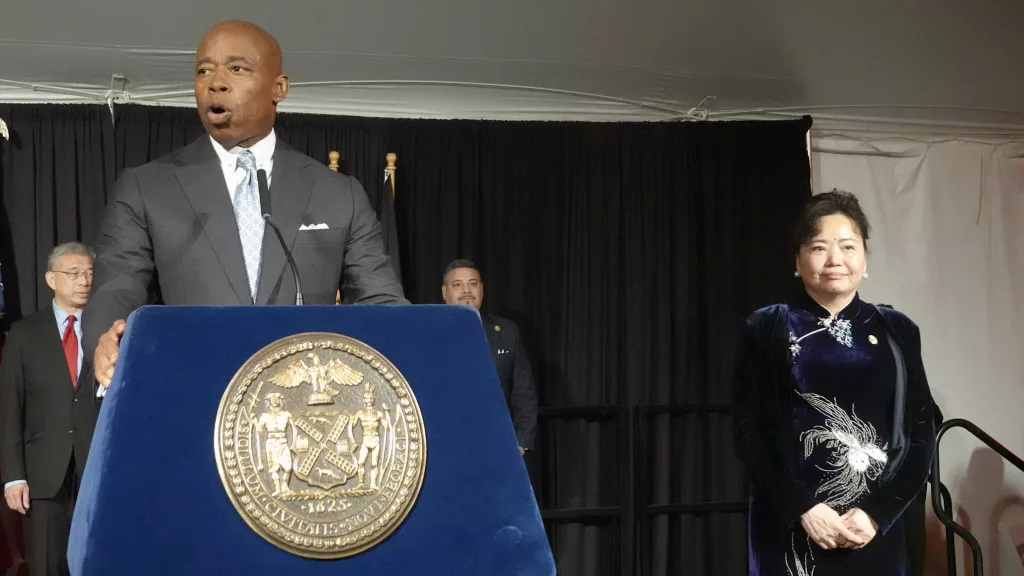
In response to Documented’s request about the June 8 campaign event in Chinatown, Evan Thies, a key advisor to the mayor and lead consultant to his campaign, noted that “there is no record of employees from CCCNY or Broadway East Group attending the June 8 campaign event.”
However, in a photograph shared with Documented by a source who requested anonymity due to concerns of potential retaliation, on June 8, Friends of Eric Adams hosted a campaign event in support of the mayor’s re-election campaign in 2025 at Hakka Cuisine in Chinatown. The restaurant is owned by Wade Li and is listed as a partner of CCCNY.
Mayor Adams and his Asian Affairs Director, Winnie Greco, posed for a group picture at the event with Wade Li, former president and current honorary president of CCCNY Ho Kew Lee, and Leeboy (Guanyu Li), who serves as a partner of BEG and is a CCCNY board member. Vic Li, who holds the position of BEG’s project management director, Chairman of CCCNY Lok Sang Mui, and CCCNY board member William Su were also present.
The Campaign Finance Board’s records show that on June 8, the same night as the fundraiser, Vic Li, Ho Kew Lee, William Su, BEG’s Executive Director Kevin Kong, BEG’s partner Roy Chen, and CCCNY’s Deputy Chairman of the Board Thomas Lo each contributed $2,098 to Eric Adams for the 2025 Citywide Elections. Furthermore, on that same day, 58 more individuals donated to Eric Adams’ campaign, reaching a total of $113,606 donated.
Last October, Mayor Adams’ son, Jordan Coleman, a rapper who goes by Jayoo, performed at a CCCNY’s event in Chinatown. Then, on March 5 this year, Winnie Greco and Coleman attended the 2023 Chinese Spring Festival Celebration event in San Francisco hosted by the Lee On Dong Association. They were accompanied by members of the Lee Family Association of New York, which is the New York branch of the Lee On Dong Association. This meetup included the same members: Wade Li, BEG’s partner Leeboy and Lee. During the event, Greco and Coleman presented a recognition certificate to the Lee On Dong Association on behalf of the New York City Mayor’s office.
When contacted by Documented, Wade Li said he is not involved with BEG “for now.” Despite actively coordinating for the East Broadway Mall project among various stakeholders, he said he prefers not to hold an official membership of BEG, as he believes maintaining a more neutral position can help facilitate coordination.
According to Wade Li, BEG’s primary shareholders are Leeboy, Chairman of Leeboy Group, and Bill Lam, both CCCNY board members. He expressed his commitment to assisting CCCNY’s board members with their mall project in any way possible and stated, “I’m proud of them.”
He further explained that his presence at the campaign event on June 8 was due to his ownership of the restaurant, but he said he was not entirely clear about the identities of the event’s sponsors. When asked about this, he mentioned, “I didn’t ask the attendees; you should ask them.”
TestPost3
Leeboy declined to provide further details on BEG’s plans for the proposed restaurant and the protection of current tenants, “it’s what we stated at the press conference.”
Regarding his invitation to Winnie Greco to attend the Lee On Dong Association’s event in San Francisco in March, Wade Li noted that he learned of her presence in San Francisco at the time and extended an invitation. When asked about who paid for Winnie Greco’s trip to San Francisco, Wade Li said, “you should ask her.” When reached by phone, Greco declined to comment.
At the time of this article’s publication, the Mayor’s office declined to comment on questions regarding the associations between Winnie Greco, Eric Adams, and Wade Li. Additionally, they did not disclose the sponsor of Winnie Greco’s trip to San Francisco in March, and whether any political connections had an impact on the bidding process for the East Broadway Mall.
As for Lu, he insisted that his lease with the mall’s former operator, the Chan family, remains valid until 2035. He has pledged to continue running his restaurant, emphasizing, “I already have my own workforce in place, and I intend to continue operating the restaurant.” Lu expressed uncertainty about how BEG intended to handle the arrangement with the 318 Restaurant Workers Union, “what they’ve told the media has nothing to do with me,” said Lu.
